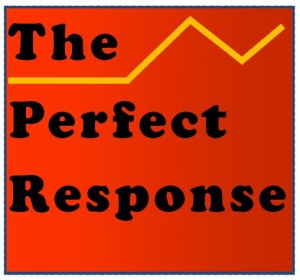All of the news media must ask whether it serves their readers or viewers to keep feeding them news from the swamplands of insurgency politics.
Donald Trump is right to note that most in the mainstream press disliked his administration and him personally. After all, he did make a habit of calling the ‘fourth estate’ the “enemy of the people.” So they eventually repaid the favor after slowly shedding their regard for his version of the Office of the Presidency. They rarely took their eyes off the unfolding train wreck of his years in office. Now, as his administration stumbles to its last days, a looming question remains about how much coverage the publicity-craving Trump will receive. My fear is that an odd symbiosis will remain. Trump will be suitably outlandish and stoke more coverage, especially from the cable news networks. There is no way President-elect Biden or Vice President-elect Harris can compete with the arrogance and excess that whets news appetites.
CNN is one significant reason why Trump got so much “free media” traction in 2016.
 In 2016 CNN especially treated even minor Trump primary successes as deserving lavish coverage. Jeff Zuckerman’s network at times simply turned over their air to garish displays of stunning excess: jaw-dropping expressions of self-regard combined with pitches for Trump Steaks and Wine. I remember commenting to my wife after one of these lavish shows that I hoped there where a few fist fights in the New York control room. At least some producers should have been furious with their network’s apparent inability to cut away to cover anything else.
In 2016 CNN especially treated even minor Trump primary successes as deserving lavish coverage. Jeff Zuckerman’s network at times simply turned over their air to garish displays of stunning excess: jaw-dropping expressions of self-regard combined with pitches for Trump Steaks and Wine. I remember commenting to my wife after one of these lavish shows that I hoped there where a few fist fights in the New York control room. At least some producers should have been furious with their network’s apparent inability to cut away to cover anything else.
CNN is one significant reason why Trump got so much “free media” traction in 2016. Zuckerman has heard the criticism before and offered the strange, inverted view that “We wanted access and Donald Trump gave it to us.” It would be more accurate to note that Trump wanted access and CNN fully obliged. All candidates want free media coverage.
This is old news, but also a cautionary tale. All of the news media must ask whether it serves their readers, viewers or the nation to keep feeding them stories from the marginal swampland of insurgency politics. Reporters never want to be told what to cover. But I am sure Trump believes he can continue to create spectacular attacks that trigger coverage. Conflict is a positive news value.
To be sure, Trump was also good for ratings. But there was a time when networks ran their news operations as “loss leaders,” providing a civic service without necessarily expecting a high return from their news divisions. Now, the cable networks live for high numbers. It’s too bad because the parent companies of Fox (Fox Corp.), CNN (AT & T) and MSNBC (Comcast) have deep pockets. The cable news networks would do better journalism without always trying to pack the circus tent.
There is a difference to providing essential information in a civil society and falling for public relations stunts. CNN might check its impulses against more the sober and balanced editing of other mainstream sources like The Associated Press or Vox News. Cable News needs to begin to act on the premise that they can cover more than one or two stories at a time, some even about public policies that actually matter.
![]()

